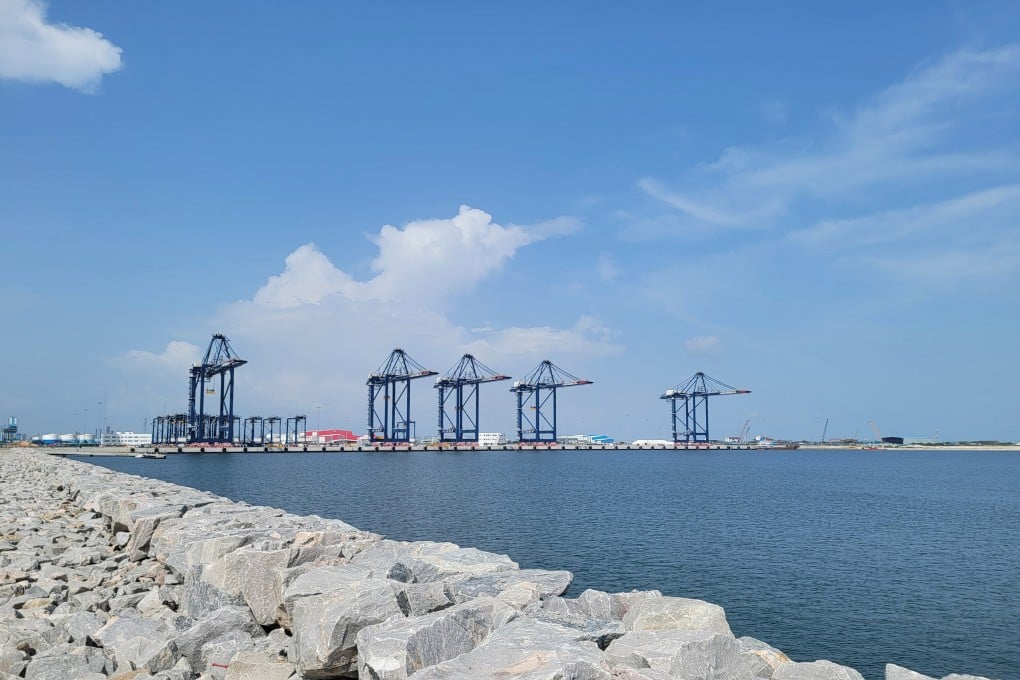Chinese builder completes US$1.5 billion deep water port in Nigeria
- Lekki Deep Sea Port, in Lagos state, can handle 1.2 million standard-sized containers a year
- Able to accommodate vessels with draughts up to 16.5 metres, it promises to become transshipment hub

Designed to handle 1.2 million 20-foot equivalent units a year, it will be one of the largest deepwater ports in West Africa and help Nigeria meet growing demand from large vessels.
The city’s existing ports at Apapa and Tin Can Island faced constraints on expansion and lost a considerable amount of business to ports in other countries in the region, such as Ghana, due to deteriorating infrastructure, including roads.
In July, the heavy-load carrier Zhen Hua 28, which is registered in Hong Kong and owned by Shanghai Zhenhua Port Machinery, arrived at the port with the equipment needed to put the finishing touches on its infrastructure.
The construction and development of the port was undertaken by China Harbour Engineering LFTZ Enterprise, a special purpose vehicle that was awarded a 45-year concession by the Nigerian Ports Authority on a build, own, operate and transfer basis – a model of infrastructure financing that has gained traction in Africa recently as Chinese policy banks become more cautious in their lending for risky projects.
The port is one of a growing number of projects funded by Chinese enterprises through a combination of debt and equity in public private partnership deals as some African countries experience debt distress. Investors in PPPs recover their money from operating the projects or charging fees like road tolls.